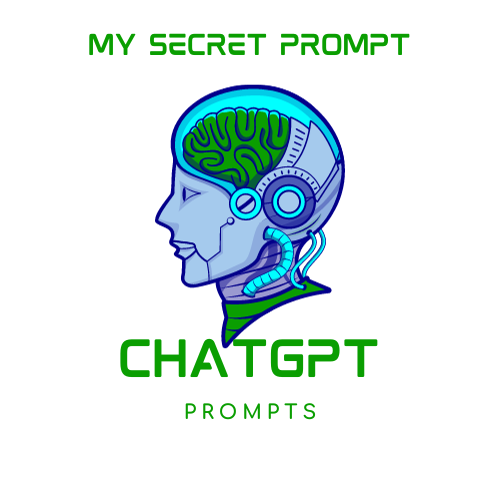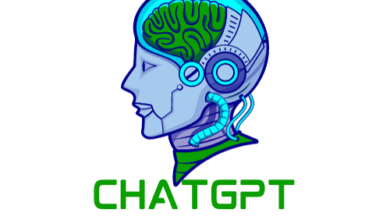24 ChatGPT Prompts for Book Writing: Unleash Your Creative Writing
Unlocking Creativity: 24 ChatGPT Prompts for Authoring Compelling Stories

Discover 24 ChatGPT Prompts for book writing, Creative Writing, and guiding authors through a comprehensive journey of crafting engaging narratives. Get expert insights, FAQs, and tips to fuel your writing process!
Contents
- 1 1. Setting Clear Objectives: Igniting Your Writing Journey
- 2 2. The Power of a Consistent Writing Space
- 3 3. Hone Your Book Idea: From Concept to Brilliance
- 4 4. The Vital Role of Research in Writing
- 5 5. Crafting a Writing Routine: Sustaining Your Momentum
- 6 6. Character Development: Breathing Life into Protagonists and Antagonists
- 7 7. Plot Construction: Building the Foundation of Narratives
- 8 8. The Role of Dialogue: Mastering Conversations on Paper
- 9 9. Setting the Scene: Painting Vivid Imagery
- 10 10. Themes and Messages: Crafting Layers of Meaning
- 11 11. Overcoming Writer’s Block: Nurturing Creativity Amidst Challenges
- 12 12. Editing and Revision: Polishing Your Masterpiece
- 13 13. Crafting Memorable Beginnings: Capturing Reader Attention
- 14 14. Pacing and Tension: Maintaining Reader Engagement
- 15 15. Balancing Show and Tell: Guiding Reader Experience
- 16 16. Building Subplots: Adding Layers to Your Story
- 17 17. Foreshadowing and Symbolism: Crafting Literary Nuances
- 18 18. Crafting Memorable Endings: Leaving a Lasting Impression
- 19 19. Managing Time and Structure: Organizing Your Narrative
- 20 20. Overcoming Self-Doubt: Embracing Confidence in Your Work
- 21 21. Writing Authentic Emotions: Evoking Reader Empathy
- 22 22. Diversity and Inclusivity: Embracing Varied Perspectives
- 23 23. Marketing Your Book: Strategies for Success
- 24 24. The Writer’s Journey: Embracing Growth and Evolution
- 25 FAQs:
- 26 Conclusion:
1. Setting Clear Objectives: Igniting Your Writing Journey
Embark on your writing adventure by defining concrete goals and objectives. How does determining your genre, target audience, and envisioned outcomes fuel your motivation and maintain focus during the creative process?
2. The Power of a Consistent Writing Space
Unlock your creativity by understanding the impact of a consistent writing space. How does cultivating a dedicated area enhance productivity, nurture your creative flow, and elevate your overall writing experience? Discover tips to curate an inspiring workspace tailored to your unique needs.
3. Hone Your Book Idea: From Concept to Brilliance
Delve into the process of refining your book idea. Uncover effective techniques for brainstorming, refining, and validating your concept. How can you ensure your idea is both unique and captivating, capturing the interest of your audience while remaining marketable?
4. The Vital Role of Research in Writing
Explore the significance of research in the book-writing journey. What types of information should you seek, and how can you effectively gather and organize your findings? Learn the importance of referencing and organizing research to lend credibility and depth to your narrative.
5. Crafting a Writing Routine: Sustaining Your Momentum
Craft a writing routine tailored to your individual rhythm. Discover the significance of setting word count goals, identifying optimal writing times, and sustaining consistency. How does establishing this routine anchor your progress and maintain your momentum throughout the writing process?
6. Character Development: Breathing Life into Protagonists and Antagonists
Dive into the art of character development. Explore methods to create well-rounded protagonists and compelling antagonists. How can you infuse depth, relatability, and authenticity into your characters, making them resonate with your audience?
7. Plot Construction: Building the Foundation of Narratives
Unravel the intricacies of constructing a compelling plot. What elements constitute an engaging storyline, and how can you structure events to maintain suspense and captivate readers? Explore techniques to craft plots that leave a lasting impact.
8. The Role of Dialogue: Mastering Conversations on Paper
Master the art of writing impactful dialogue. How does authentic dialogue enhance character development and propel the narrative forward? Learn to infuse conversations with emotion, subtext, and realism to engage your audience.
9. Setting the Scene: Painting Vivid Imagery
Immerse readers in your world through vivid descriptions. What techniques can you employ to create evocative settings that transport readers? Explore the role of sensory details in establishing atmosphere and enhancing the reader’s experience.
10. Themes and Messages: Crafting Layers of Meaning
Delve into the significance of themes and messages in your writing. How do they add depth and resonance to your story, leaving a lasting impact on readers? Explore methods to weave profound themes seamlessly into your narrative.
11. Overcoming Writer’s Block: Nurturing Creativity Amidst Challenges
Navigate the challenge of writer’s block with effective strategies. How can you reignite your creativity and overcome mental barriers to keep the writing process flowing smoothly?
12. Editing and Revision: Polishing Your Masterpiece
Unlock the importance of editing and revision in refining your manuscript. What techniques can you employ to ensure your work is polished and error-free? Explore the art of self-editing and seeking external feedback.
13. Crafting Memorable Beginnings: Capturing Reader Attention
Discover the secrets to crafting captivating openings. How can you hook readers from the very first sentence, compelling them to delve deeper into your narrative? Learn techniques to create intriguing beginnings that captivate attention.
14. Pacing and Tension: Maintaining Reader Engagement
Explore the delicate balance of pacing and tension in your story. How can you control the narrative tempo and maintain reader engagement throughout your book? Discover techniques to heighten suspense and intrigue.
15. Balancing Show and Tell: Guiding Reader Experience
Master the art of showing and telling in your writing. How can you strike a balance between descriptive scenes and narrative summary, guiding readers through your story while maintaining their engagement?
16. Building Subplots: Adding Layers to Your Story
Uncover the significance of subplots in enriching your narrative. How do subplots complement the main storyline, adding complexity and depth to your book? Learn techniques to intricately weave subplots into your overarching narrative.
17. Foreshadowing and Symbolism: Crafting Literary Nuances
Explore the subtle art of foreshadowing and symbolism in your writing. How can these literary devices add layers of meaning and anticipation to your story, engaging readers on multiple levels?
18. Crafting Memorable Endings: Leaving a Lasting Impression
Navigate the process of creating impactful endings. How can you conclude your story in a way that lingers in the minds of readers, leaving a lasting impression? Discover techniques to deliver satisfying and memorable conclusions.
19. Managing Time and Structure: Organizing Your Narrative
Explore methods to manage time and structure within your narrative. How can you effectively structure your story’s timeline to enhance clarity and impact? Learn techniques to navigate nonlinear storytelling and multiple timelines.
20. Overcoming Self-Doubt: Embracing Confidence in Your Work
Address the challenge of self-doubt in the creative process. How can you cultivate confidence in your writing, allowing your authentic voice to shine through despite internal uncertainties?
21. Writing Authentic Emotions: Evoking Reader Empathy
Explore the art of conveying authentic emotions in your writing. How can you create emotional resonance, allowing readers to empathize with your characters’ experiences and feelings?
22. Diversity and Inclusivity: Embracing Varied Perspectives
Delve into the importance of diversity and inclusivity in storytelling. How can you incorporate diverse perspectives and experiences authentically, enriching your narrative and fostering representation?
23. Marketing Your Book: Strategies for Success
Uncover effective strategies for marketing your book. How can you navigate the process of promoting your work, reaching your target audience, and building anticipation for your book’s release?
24. The Writer’s Journey: Embracing Growth and Evolution
Reflect on your writing journey and the lessons learned. How has the process of writing shaped you as an individual? Embrace the evolution and growth experienced throughout your creative endeavors.
This comprehensive guide to book writing provides a roadmap to unleash your creative potential, guiding you through the intricate and rewarding process of crafting compelling narratives that resonate with readers. Dive into these prompts and embark on your literary journey with confidence and creativity.
FAQs:
1. What is the significance of setting clear objectives in book writing?
- Answer: Setting clear objectives defines the direction of your book, helping you stay focused and motivated throughout the writing process.
2. How does a consistent writing space impact creativity and productivity?
- Answer: A consistent writing space fosters creativity and productivity by providing a conducive environment tailored to individual needs.
3. What role does research play in the book writing journey?
- Answer: Research lends credibility and depth to narratives, aiding in the creation of authentic and well-informed stories.
4. How important is developing a writing routine for authors?
- Answer: Developing a writing routine ensures consistency and helps authors maintain momentum in their creative endeavors.
5. What are the key elements of crafting memorable beginnings and endings?
- Answer: Memorable beginnings hook readers, while impactful endings leave a lasting impression, contributing to a satisfying reading experience.
Conclusion:
The journey of book writing is an intricate yet rewarding process that begins with setting clear goals, establishing routines, and nurturing creativity. Through research, character development, and compelling storytelling, authors can create engaging narratives. Crafting memorable openings, exploring diverse themes, and concluding with impact are vital aspects of captivating readers. Embrace this journey with confidence, dedication, and a commitment to growth.
